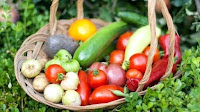Summer heat and disease can take down a healthy lawn or budding
flower garden quickly. To avoid spending hundreds restoring your garden next
year, you can maintain it through the season. To keep your garden and lawn
looking beautiful despite the heat, follow the steps outlined in this
checklist:
Remove Dead Plants:
Whether they died of
disease, insect damage or natural causes, dead plants shouldn’t remain in the
garden. Not only are they unsightly, but they can harbor pests that may spread
to other plants. Move dead plants to a compost pile if they are safe for that
purpose. If further infestation is a concern, burn or bag and dispose of the
plants off site.
Mulch:
Mulch can make a huge difference in growing conditions insulating soil from the heat, blocking weeds and helping to conserve moisture. We recommended to keep a thick layer of mulch on landscape and
garden plantings through summer.
Deadhead:
Removing spent flowers helps plants put more energy
into flowering again. Annuals, and repeat flowering shrubs and perennials will
offer more color, more often during the season if you deadhead.
Pest Management:
Be vigilant...As you
deadhead, weed and water, watch for signs of insect and disease pests. The
solution may be simple or complex, but the key to garden success lies in early
detection and prompt, decisive treatment. Know, invite and protect the good
bugs in your garden. Follow the manufacturers instructions on any
treatments that may be necessary.
Fertilizer:
Mid-summer is a good time
to address fertilization in the landscape and garden. Yellowish
leaves may signify an iron deficiency in an otherwise healthy plant
(particularly in lawns and broad-leaf evergreens like gardenias, rhododendrons,
azaleas, hollies and others). It is also time to feed hungry garden veggies
like greens, tomatoes, peppers and others that may have been planted a month
ago or more.
Pick Veggies Clean:
In
the vegetable garden, keep repeat fruiting plants (like tomatoes, beans,
cucumbers, okra and others) picked cleanly as the fruit ripens. Allowing fruit
to become over-mature slows production, and may spell the end of the season for
these plants.
Weeds:
As
plants fill out in early summer, if you’ve kept them weeded up to that
point, they should begin to shade out most of their weed competition. It’s okay
to slow down, but don’t stop weeding. One weed left to go to seed can cause
much more weeding in the future.
Water:
If it’s dry, remember to give your garden an inch of irrigation water per week. Containers may need
significantly more, especially in hot, arid conditions. If you are having a wet
summer, be sure that automated irrigation is adjusted or turned off until
needed.
Call For a FREE Estimate and Consulting:
631-428-6740









